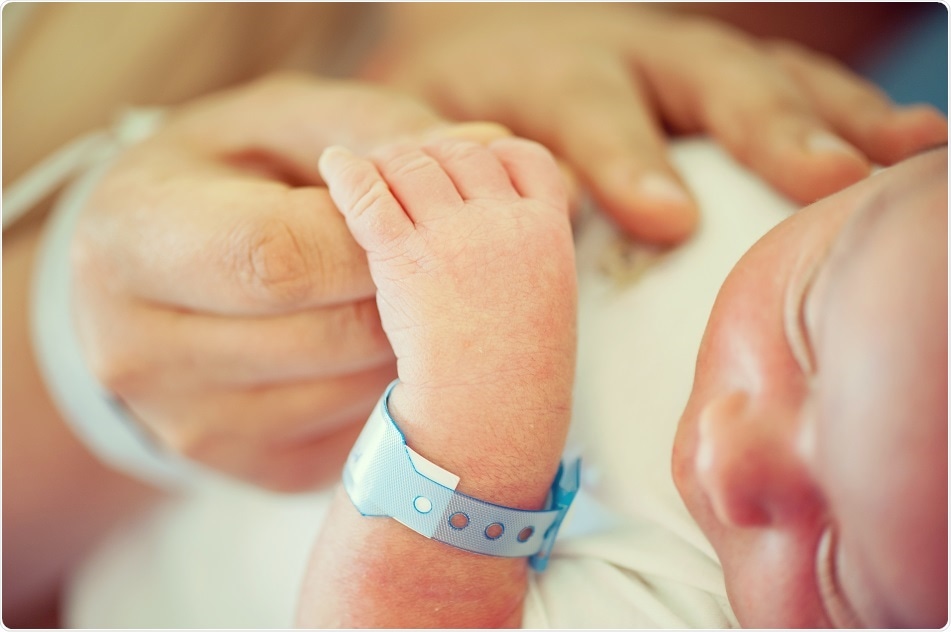Newborn babies exhibit a heightened response to pain when they are under stress, according to a study published in Current Biology. However, this is not detectable in babies’ behaviour due to the stress causing a disconnect between their brain activity and their behavior.

Credit: ESB Professional/ Shutterstock.com
One of the paper’s authors, Laura Jones, from University College London, says: When newborn babies experience a painful procedure, there is a reasonably well coordinated increase in their brain activity and their behavioral responses, such as crying and grimacing. Babies who are stressed have a larger response in the brain following a painful procedure. But, for these babies, this greater brain activity is no longer matched by their behavior."
Laura Jones, University College London
Since newborns are unable to signal that they are in pain, doctors use indirect, behavior-based measures of pain to assess whether a newborn needs painkillers or to be made more comfortable, for example.
Jones and team knew that adults often report being in more pain when they are stressed and they wanted to find out whether this also applies to babies.
The team assessed 56 healthy newborns being looked after at the Elizabeth Garrett Anderson Obstetric Wing, University College Hospital. The babies’ stress levels were measured based on salivary cortisol levels and heartbeat patterns both before and after the babies underwent a heel lance. The babies’ pain responses were also assessed based on brain activity detected through EEG and facial expression.
The findings showed that babies with higher levels of background stress had a heightened brain reaction to undergoing the lance procedure. However, this increased brain activity was not reflected by any change in how the babies behaved.
Jones says the fact that stress affected the babies’ brain response was not surprising. However, it was not expected that the heightened brain activity would not correspond to any changes in the babies’ behaviour.
Jones says the findings provide a further reason to ensure that babies are cared for and treated in ways that minimize pain and stress. A baby under stress may not seem to respond to pain, even while their brain is still in the middle of processing it.
"This means that caregivers may underestimate a baby's pain experience," says Jones. Next, the researchers plan to explore how previous experiences and environmental factors such as interaction between mother and baby may influence how newborns experience and process pain.